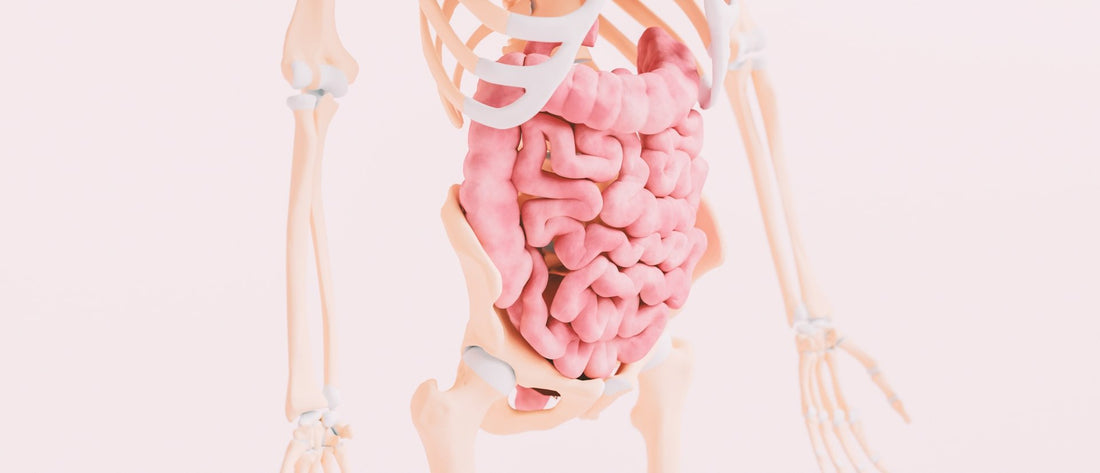
Can Hemorrhoids Cause Urethral Pain? Understanding the Connection
Share
Experiencing urethral pain can be a concerning symptom, and understanding its potential causes is essential for effective management. Hemorrhoids can indeed contribute to urethral pain in some cases, particularly when inflammation or discomfort in the anal area affects the surrounding tissues. This connection often arises from the proximity of the rectum and urethra, where swollen hemorrhoids can lead to pressure on nearby structures and result in urinary symptoms.
If you’re dealing with hemorrhoids, it's vital to address not only the discomfort they cause but also any associated issues like urethral pain. Many individuals find relief through effective treatments, and one option to consider is Hem Healer. Our 100% natural blend of botanical herbs provides a holistic approach to reduce the pain, swelling, and bleeding associated with hemorrhoids, promoting overall well-being for both men and women.
Recognizing the link between hemorrhoids and urethral pain is an important step in seeking relief. You don’t have to endure the discomfort alone; exploring natural supplements like Hem Healer can help you manage symptoms and improve your quality of life.
Understanding Hemorrhoids
Hemorrhoids are a common condition that can lead to discomfort and various symptoms. They occur when veins in the rectal area become swollen and inflamed. This section explores the types of hemorrhoids, their common symptoms, and the risk factors that contribute to their development.
Types of Hemorrhoids
Hemorrhoids are classified into two main types: internal and external.
-
Internal Hemorrhoids: These occur inside the rectum and are usually painless unless they prolapse and protrude outside. You may notice rectal bleeding during bowel movements, which can be alarming.
-
External Hemorrhoids: These develop under the skin around the anus. They can cause significant discomfort due to itching or pain, especially if a clot forms. This clot can lead to what is known as a thrombosed hemorrhoid.
Both types can lead to varying degrees of pain and irritation, affecting your daily life.
Common Symptoms
The symptoms of hemorrhoids can vary depending on their type and severity. Common symptoms include:
-
Bleeding: You might notice bright red blood on toilet paper or in the toilet bowl.
-
Pain or Discomfort: Particularly with external hemorrhoids, you may experience sharp pain during bowel movements or while sitting.
-
Itching or Irritation: Swollen veins can lead to itching around the anal area.
-
Swelling: You may observe swelling around your anus, resulting from inflamed tissue.
Recognizing these symptoms early can help address issues before they worsen.
Risk Factors for Hemorrhoids
Several factors can increase your risk of developing hemorrhoids:
-
Straining During Bowel Movements: This is often caused by chronic constipation or diarrhea, putting excess pressure on the veins.
-
Obesity: Extra weight can put pressure on your pelvic veins, leading to hemorrhoid formation.
-
Pregnancy: The growing uterus adds pressure to the pelvic region, making expectant mothers particularly susceptible.
Incorporating a natural supplement like Hem Healer may help alleviate symptoms. Our product features a blend of botanical herbs designed to reduce pain, swelling, and bleeding effectively for both men and women.
Correlation Between Hemorrhoids and Urethral Pain
The relationship between hemorrhoids and urethral pain is significant due to anatomical proximity and potential complications. Understanding how they interact can help address symptoms effectively.
Anatomical Connection
Hemorrhoids form in the lower rectum and anus, areas closely adjacent to the urethra. The proximity means that inflammation or swelling from prolapsed hemorrhoids may exert pressure on surrounding structures, including the urethra. This pressure can lead to discomfort or irritation, manifesting as urethral pain.
The pelvic floor plays a crucial role in bowel and urinary function. Dysfunction in this region can lead to urinary problems. When hemorrhoids are present, the pelvic floor muscles may tighten, inadvertently affecting bladder function.
Understanding this connection helps in addressing both hemorrhoid symptoms and potential urinary urgency or discomfort.
Potential Causes of Urethral Pain
Various mechanisms can contribute to urethral pain linked to hemorrhoids. Irritation from inflamed hemorrhoidal tissue may extend to the urethra, causing urinary symptoms such as pain during urination or frequent urges.
In cases where hemorrhoids prolapse, they may obstruct normal urinary flow, affecting the bladder's ability to function optimally. This obstruction can increase pressure and lead to urinary urgency.
If you are experiencing such symptoms, seeking treatment for hemorrhoids can alleviate discomfort. Hem Healer offers a 100% natural blend of botanical herbs designed to reduce pain and swelling, helping to improve your overall well-being. By addressing hemorrhoid issues, you may find relief from associated urethral pain as well.
Treatment Options for Hemorrhoids
Managing hemorrhoids effectively involves various approaches that cater to the severity of your condition. These options range from lifestyle changes to medical interventions, ensuring you can find a suitable method for relief.
Conservative Management
Initially, conservative management is often the first line of defense. This includes dietary modifications to increase fiber intake, which can help soften stools and reduce straining during bowel movements. Incorporating foods high in fiber such as fruits, vegetables, and whole grains is essential.
You may also benefit from stool softeners to ease bowel movements further. Additionally, taking warm baths can provide soothing relief, easing discomfort and promoting better blood circulation in the affected area. Regular use of these methods can significantly improve symptoms.
Medication and Topical Treatments
Various medications and topical treatments can alleviate the pain and discomfort associated with hemorrhoids. Over-the-counter hemorrhoid creams can reduce inflammation and provide temporary relief. These creams often contain soothing ingredients that help with itching and burning sensations.
Suppositories may also be effective, delivering medication directly to the source of irritation. For persistent cases, prescription medications may be necessary. You could consider incorporating a supplement like Hem Healer, a 100% natural blend of botanical herbs designed specifically for hemorrhoid relief. This supplement helps reduce pain and swelling, making it a valuable addition to your treatment regimen.
Surgical Interventions
For severe or recurrent hemorrhoids, surgical options might be necessary. The most common procedure is a hemorrhoidectomy, which involves removing excess tissue that causes bleeding and protrusion. This surgery is effective but requires a recovery period where you may experience pain.
Some patients may opt for less invasive procedures such as rubber band ligation or sclerotherapy. These methods can also effectively treat hemorrhoids while minimizing downtime. Consulting with a healthcare provider will help determine the best surgical approach based on your specific situation.
Identifying and Treating Urinary Complications
Urinary complications can arise from hemorrhoids even if they are not commonly linked. It’s essential to identify symptoms early and manage them effectively, as untreated issues can lead to further complications.
Urinary Tract Infections
A urinary tract infection (UTI) can occur due to bacteria, often E. coli, entering the urinary system. Symptoms may include a burning sensation during urination, urgency, or cloudy urine.
If you suspect a UTI, it is crucial to consult a healthcare provider. Treatment typically involves antibiotics to eliminate the infection. Drinking plenty of fluids can help flush out bacteria.
Long-term prevention may include proper hydration and personal hygiene practices. If you experience recurrent UTIs, discuss strategies with your doctor.
Managing Urinary Incontinence
Urinary incontinence is the involuntary leakage of urine, often exacerbated by conditions like hemorrhoids. You may experience this due to pelvic floor weakness or nerve damage.
Pelvic floor exercises, also known as Kegel exercises, can strengthen the muscles involved. For some, medical devices or medications may help manage symptoms. Behavioral techniques, such as timed voiding, can also be effective.
If incontinence continues, a healthcare provider may suggest more advanced treatments, ensuring you maintain your quality of life.
Addressing Bladder and Kidney Issues
Bladder and kidney complications may arise from untreated hemorrhoids or related urinary issues. Kidney stones and bladder stones can cause significant pain and necessitate medical intervention. Symptoms include severe pain, discomfort during urination, and, in some cases, blood in the urine.
Treatment options vary depending on the severity of the condition. Management of kidney stones may involve dietary changes or procedures to remove the stones. A healthcare provider will evaluate your situation and recommend the best course of action.
Additionally, products such as Hem Healer can support overall health by providing a natural remedy to reduce hemorrhoid symptoms, allowing for improved comfort during urinary functions.
Preventive Measures and Lifestyle Adjustments
Creating effective preventive measures and making lifestyle adjustments can significantly reduce the risk of developing hemorrhoids and related discomfort. Focus on specific dietary changes, physical activity, and proper hydration to support your overall health.
Dietary Changes
A high-fiber diet is essential for maintaining healthy bowel movements and preventing constipation. Incorporate foods such as fruits, vegetables, whole grains, and legumes into your meals. Aim for at least 25-30 grams of fiber daily to keep your stool soft and easy to pass. Consider integrating natural stool softeners if necessary. Avoid low-fiber diets that often lead to straining during bowel movements, a common cause of hemorrhoids.
Make sure to balance your meals with various fiber sources to enhance digestion. Fiber supplements can also assist in reaching your daily intake. For optimal results, consider adding Hem Healer to your regimen. This 100% natural blend of botanical herbs can help alleviate hemorrhoid discomfort and support your digestive health.
Physical Activity and Body Weight Management
Regular physical activity plays a crucial role in preventing hemorrhoids. Aim for at least 150 minutes of moderate-intensity exercise per week. Walking, swimming, and cycling can improve circulation and support healthy bowel function. In addition, pelvic floor exercises help strengthen the muscles around the rectum, reducing the likelihood of hemorrhoid development.
Managing body weight is important as obesity increases the risk of developing hemorrhoids due to added pressure on the pelvic region. Strive to maintain a healthy weight through a combination of exercise and dietary changes. Avoid lifting heavy objects that could increase abdominal pressure, which may aggravate the condition.
Hydration and Fluid Intake
Staying well-hydrated is vital for digestive health and preventing hemorrhoids. Aim to drink at least 8-10 cups of water each day. Adequate hydration ensures that your stool remains soft, making it easier to pass. Consider drinking warm beverages in the morning to stimulate bowel movements.
Avoid excessive consumption of caffeinated or alcoholic beverages, as they may lead to dehydration. Along with water, incorporate hydrating foods, such as cucumbers and oranges, into your meals to enhance your hydration efforts. Proper hydration, combined with a high-fiber diet, can significantly reduce your risk of developing hemorrhoids and related symptoms.

